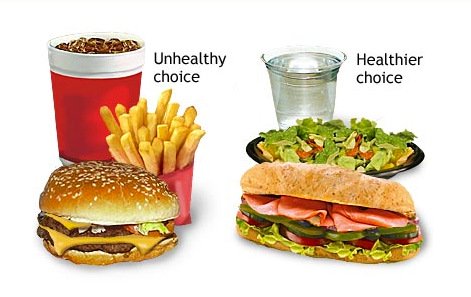McDonald’s Removes Employee Website After Advising Against Own Food

We know a hamburger and fries from McDonald’s is far from a “healthy” choice, but the fast food giant would like you to believe it is. So when the fast food giant’s employee resource website known as McResource Line offered advice to workers of the fast food giant, including advising them that a typical McDonald’s meal was unfit for consumption, the company yanked the site altogether.
“A combination of factors has led us to reevaluate and we’ve directed the vendor to take down the website,” explained an official statement released by McDonald’s. “Between links to irrelevant or outdated information, along with outside groups taking elements out of context, this created unwarranted scrutiny and inappropriate commentary. None of this helps our McDonald’s team members.”
The website displayed a photo marking a meal that looked remarkably similar to an Extra Value Meal as an “unhealthy choice” while a selection with a sub sandwich and salad was marked “healthy”. Further, the site went on to discuss fast food restaurants in general, saying “fast foods are typically high in calories, fat, saturated fat, sugar, and salt and may put people at risk for becoming overweight.”
(You can see the display featured on McResource Line here.)

McDonald’s contracted with a third-party to provide health information on the website, ideally targeting their employees. But, since that guffaw, they’ve decided to rethink their approach.
This wasn’t the first questionable post on the McResource Line, however. Just last month the website provided financial advice, telling McDonald’s workers (who typically make around minimum wage) how to tip their pool boy and their au pair—services fast-food workers aren’t likely to have.
The company profits like many other fast food restaurants—by providing cheap food-like products to the masses with low operating costs. These costs are not only kept low by purchasing and creating “food” that isn’t valuable, but by paying employees far less than they deserve. In fact, U.S. taxpayers pay an estimated $7 billion annually to help fast food workers – many of which are enrolled in public assistance programs such as food stamps.
The McResource Line offered some eye-opening facts to employees and the public: that fast food is indeed unhealthy and the company doesn’t particularly want you to know that, and that workers are paid less than enough to afford life above the poverty line, let alone a pool boy or au pair.
